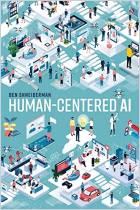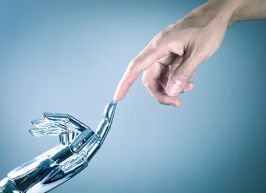Melden Sie sich bei getAbstract an, um die Zusammenfassung zu erhalten.

Melden Sie sich bei getAbstract an, um die Zusammenfassung zu erhalten.
Verity Harding
AI Needs You
How We Can Change AI’s Future and Save Our Own
Princeton UP, 2024
Was ist drin?
Technology can be made to serve humanity as well as business and politics — if society learns from the past.
Recommendation
Dire warnings about the potential impacts of AI are everywhere, but what humanity needs is solutions. AI policy expert Verity Harding finds them by exploring the stories of three technical revolutions — the space race, IVF, and the internet — to learn how society established ethical, inclusive governance frameworks for them. Lucid, absorbing, and hopeful, Harding’s book illustrates how social values and the public good can be balanced against the political and business interests currently shaping AI’s future. An important and compelling contribution to the debate over AI.
Summary
About the Author
Verity Harding is widely recognized for her influence in the field of artificial intelligence and technology policy. As a leader at the intersection of politics and tech, she worked with major institutions such as Google DeepMind, where she was the first Global Head of Policy, and more recently as the director of the AI & Geopolitics Project at Cambridge University’s Bennett Institute for Public Policy. She was listed among Time magazine’s 100 Most Influential People in AI in 2023.





















Comment on this summary
En primer lugar, la implementación de la Inteligencia Artificial en mi empresa posibilita que los colaboradores se enfoquen en labores más estratégicas, creativas o delicadas, con la finalidad de incrementar la eficiencia y la productividad.
El acceso a la Inteligencia Artificial posibilita a las compañías aprovechar el potencial revolucionario de la IA y brinda una considerable ventaja competitiva, tanto en la mejora de los procesos internos como en la mejora de los procesos externos y la experiencia del cliente.
Para lograr esto, la Inteligencia Artificial puede ser utilizada en una extensa gama de aplicaciones. La tecnología está al alcance de cada uno, y desarrollar estrategias de mejora para los usuarios y nuestras empresas.